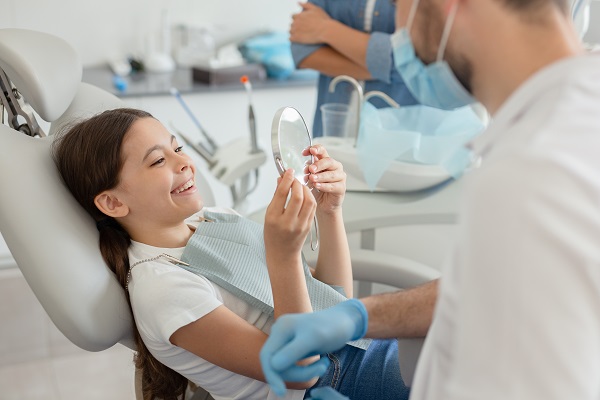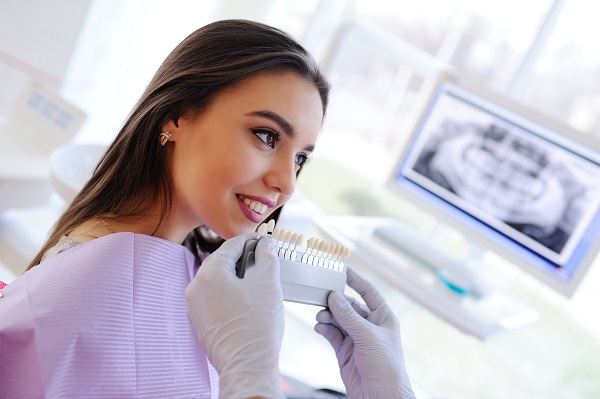A Family Dentist in Kennett Square Answers: Should I Use Mouthwash?

Are you thinking of using mouthwash and wondering what your family dentist recommends? For those that practice good oral hygiene, the daily use of mouthwash is part of their routine. For those who do not practice proper oral hygiene, mouthwash is often used as a substitute for brushing their teeth.
Despite the ease and benefits of mouthwash, some people wonder if the use of mouthwash is necessary, especially if you brush and floss regularly. Since they bring up a valid point, we decided to ask a family dentist if the use of mouthwash is necessary.
Why should I use mouthwash?
One of the reasons why your family dentist recommends using mouthwash is the fact that it kills the bacteria left in your mouth after brushing and flossing, which helps to prevent plaque and tartar buildup.
Another advantage of mouthwash is the fact that it freshens your breath and kills bad-breath-causing bacteria. Make sure you check the label to find out if the type of mouthwash you are using kills germs instead of just masking your breath.
Using fluoride mouthwash daily also helps to strengthen your enamel, which helps to protect your teeth and reduce your risk of developing cavities.
Which type of mouthwash should I use?
Choosing the right mouthwash can be difficult because there are many options to choose from. The most important thing is to make sure the mouthwash you use contains fluoride, which strengthens your enamel and helps to prevent cavities. Below are the different kinds of mouthwash available on the market:
Whitening mouthwash
This mouthwash is popular with people who want to whiten their teeth or keep their newly whitened teeth free of stains. Since this is a whitening mouthwash, it contains a bleaching agent that whitens your teeth and generally only whitens your teeth and freshen your breath. Despite the popularity of whitening mouthwashes, your family dentist will recommend getting your teeth whitened at the office or using a take-home kit for the best results.
Cosmetic mouthwash
This type of mouthwash typically does not fight the germs in your mouth. The primary function of the mouthwash is to mask bad breath, which is something you can do with breath mints and gum.
Desensitizing mouthwash
This mouthwash is designed for people with sensitive teeth. It contains arginine, an amino acid that reduces dentine hypersensitivity. If you have sensitive teeth, talk to your family dentist before buying the mouthwash to make sure it is right for you.
Fluoride mouthwash
This is the most popular type of mouthwash because it not only kills germs in your mouth and freshens your breath. It also protects your teeth from cavities and tooth decay because fluoride is considered the best ingredient when it comes to fighting cavities, which is why there is fluoride in most public water systems in the United States.
Conclusion
Now that you know more about the different types of mouthwash and their uses, you should be able to decide which one is right for you. If you are still unsure about which mouthwash to use, consult with your family dentist in Kennett Square.
Request an appointment here: https://www.leardidental.com or call Leardi Family Dentistry at (610) 444-8744 for an appointment in our Kennett Square office.
Check out what others are saying about our services on Yelp: Read our Yelp reviews.
Recent Posts
A kid-friendly dentist treats oral health concerns in children. However, an equally important part of their job is to work with parents to improve their child’s oral hygiene at home. This is because the majority of oral care takes place away from the office, so parents knowing how to help their child maintain a beautiful…
A dental implants restoration can replace a missing tooth that falls out naturally, gets knocked out or is extracted. A dental implant restoration is often recommended after tooth extraction, as it prevents bone loss from occurring and offers cosmetic and functional benefits. There are several ways to replace a missing tooth after an extraction, including with…
Preventive dental care is a great way to help reduce the risk of oral health conditions. Preventive dental care includes regular checkups, brushing teeth twice a day, and flossing at least once daily. These tasks can be time-consuming and seem trivial, but they are crucial for maintaining good oral hygiene. The American Dental Association recommends that…
If you desire a more aesthetically pleasing smile, dental veneers are options that you should consider. Veneers are thin, customizable shells created to cover the front sides of the teeth. A dentist will often suggest this option when there are imperfections on the teeth, some of which are covered in this article.Teeth gaps are called…


